Deep Learning Workshop
FOSSASIA 2018
Learn to Learn to Learn
25 March 2018
About Me
- Machine Intelligence / Startups / Finance
-
- Moved from NYC to Singapore in Sep-2013
- 2014 = 'fun' :
-
- Machine Learning, Deep Learning, NLP
- Robots, drones
- Since 2015 = 'serious' :: NLP + deep learning
-
- & Papers...
- & Dev Course...
About Red Dragon AI
- Deep Learning Consulting & Prototyping
- Education / Training
- Products :
-
- Conversational Computing
- Natural Voice Generation - multiple languages
- Knowledgebase interaction & reasoning
Learning to
Learn to Learn
- The basic ideas of Learning
- Learning from a lot of data
- Learning from some data
- Learning from a little data
NB: If you have VirtualBox : Install the 'OVA'
Workshop : Neurons and Features
-
- Go to the Javascript Example : TensorFlow
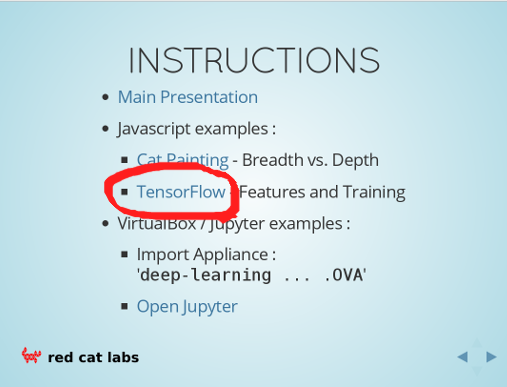
(or search online for TensorFlow Playground)
TensorFlow Playground
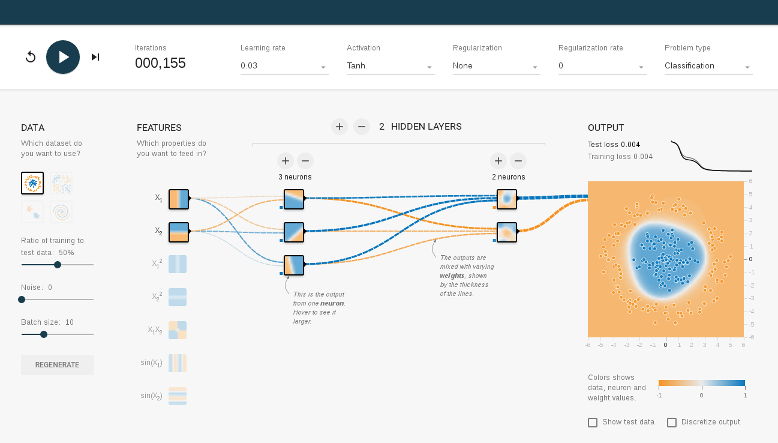
Things to Understand
- Hands-on :
-
- Goal : learning to predict regions
- Input features
- What a single neuron can learn
- The blame game
- How deep networks 'create' features
Image Competition
- ImageNet aka ILSVRC
- over 15 million labeled high-resolution images...
- ... in over 22,000 categories
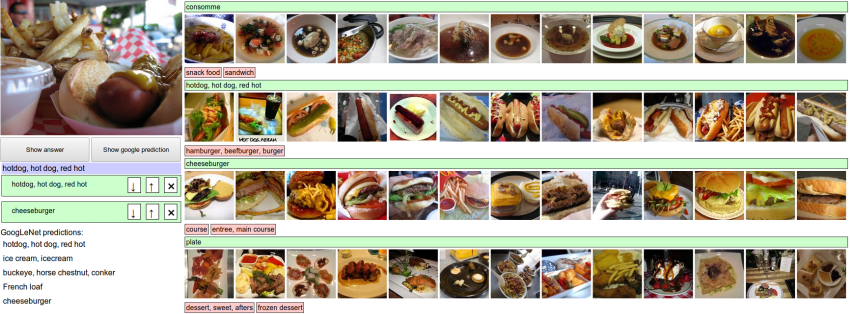
More Complex Networks
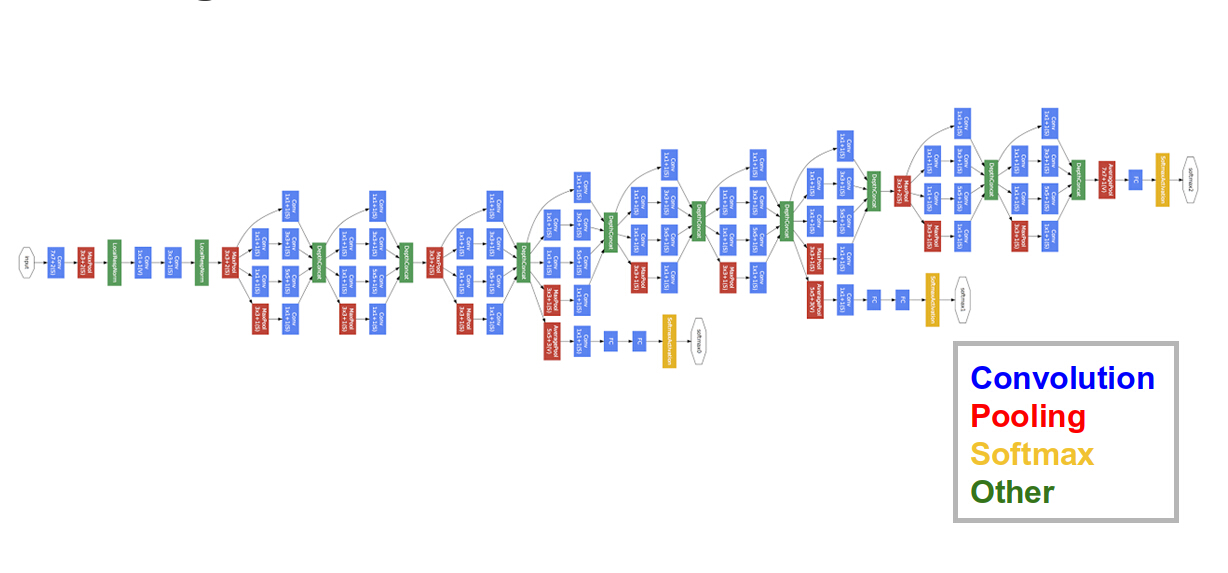
GoogLeNet (2014)
... Even More Complex
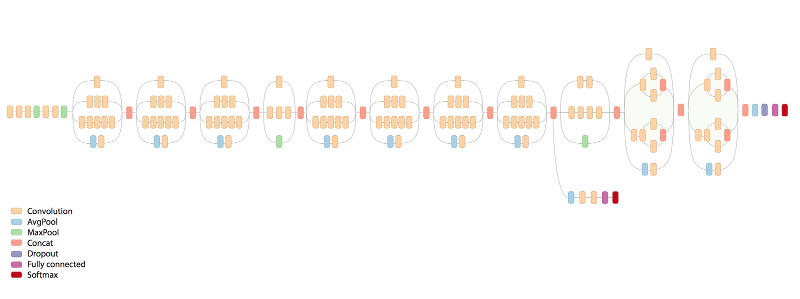
Google Inception-v3 (2015)
... and Deeper
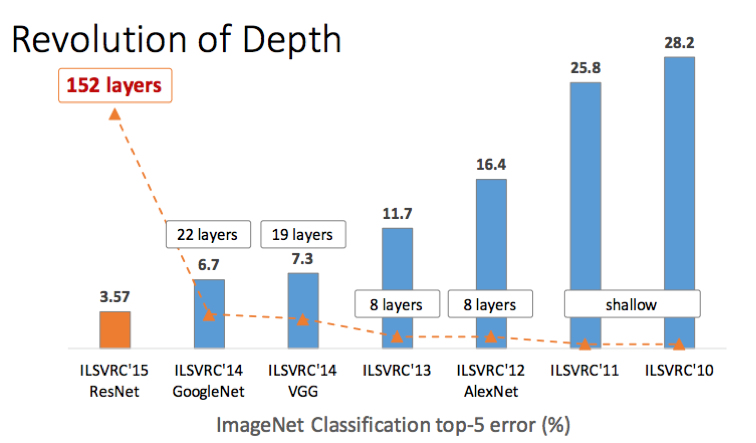
Microsoft ResNet (2015)
Workshop : VirtualBox
- Import Appliance '
fossasia ... .OVA' - Start the Virtual Machine...
Workshop : Jupyter
- On your 'host' machine
- Go to
http://localhost:8080/
VM : SSH
From your 'host' machine :
ssh -p 8282 user@localhost
VM : Console
Login: user
Password: password
#...
./run-jupyter.bash
#....
Workshop : TensorBoard
- On your 'host' machine
- Go to
http://localhost:8081/
Hands-On : ImageNet
2-CNN/5-TransferLearning/
5-ImageClassifier-keras.ipynb
ImageNet Classification
Trained from Zero
- Uses vast numbers of images
- Huge computational resources
- Does exactly what we told it to do
Transfer Learning
Based on existing model
- Uses pretrained (ImageNet) model
- Leverages it to classify new classes
- Much less training data required
Next Level Learning
- Previous methods learn from large amounts of data
-
- But humans can learn from very little data
- We need models that do the same
- Ideally, we want the models to Learn how to Learn
Meta-Learning
- Two main types of meta-learning :
-
- Learn how to build the best model
- Structure meta-learning
- Build a model that learns quickly
- One-Shot Learning / Few-Shot Learning
- Learn how to build the best model
Structure Meta-Learning
- Problem : It's difficult for humans to build models
- Solution :
-
- Enable computers to build models
- By searching model architectures efficiently
- By predicting which architectures might work well
- Already seen the results...
NASNET Cells
- The NASNet structure is created
-
- ... by searching over architectures
- Better accuracy / speed / power tradeoffs than humans
( not the focus of this talk )
One-Shot Learning
- Humans can learn from few examples
-
- eg : "Hammer-Whisk"
One-Shot Learning
- Want a model that can also learn tasks quickly :
-
- Model should be trained on many tasks
- Each task will only have small amounts of data
( backtrack a little )
Regular-Learning
- Training set:
-
- A bunch of different classes
- Each class has sample images to learn
- Test set:
-
- Can the model classify a previously unseen image?
Meta-Learning
- Training set:
-
- A bunch of different tasks
- Each task is a different problem to learn
-
- Each of those problems has small amounts of data
- Test set:
-
- Can the model learn a previously unseen task quickly?
Hands-On : Meta-Learning
8-MetaLearning/
2-Reptile-Sines.ipynb
Reptile-Sines
- Learn to learn tasks quickly
- Each task in the meta-training set :
-
- Creates a 'sine wave' with random amp. and phase
-
- Training data is just a few points
- Test whether new points can be predicted
- The meta-test sees whether a single task learns quickly
Reptile Model Search
Initialize Φ. the initial parameter vector
for iteration 1,2,3,… do
Randomly sample a task T
Perform k>1 steps of SGD on task T,
starting with parameters Φ, resulting in parameters W
Update: Φ ← Φ + ϵ(W−Φ)
end for
Return Φ
Hands-On : One-Shot Learning
Meta-Learning Demo - '3 boxes'Omniglot Dataset
- 1623 different handwritten characters
-
- from 50 different alphabets
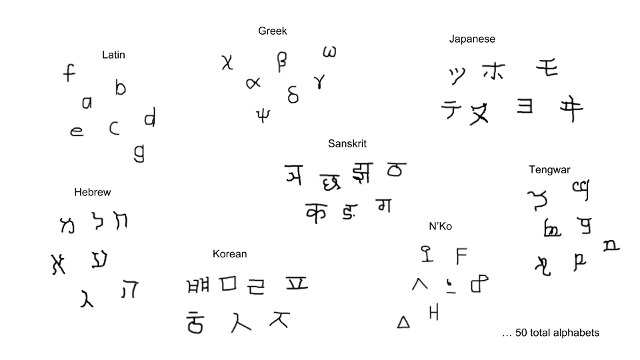
Omniglot Dataset
- Each of the 1623 characters
-
- was drawn by 20 different people
- Compare : MNIST
-
- 10 characters, drawn ~5000 times each
One-shot Classification
- Each task trains on 1 example each for 3 classes :
-
- Model pre-meta-trained on Omniglot
- Actual model running in Javascript
- The user provides the meta-test task
- ... works pretty well
Wrap-up
- Field is advancing very rapidly
- Still within grasp of individuals
- Open source applies to research too
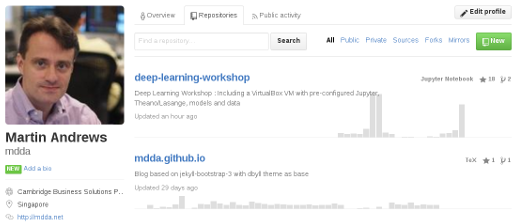
* Please add a star... *
Deep Learning
MeetUp Group
- Next Meeting = ~19-April-2018
-
- Hosted by Google
- Typical Contents :
-
- Talk for people starting out
- Something from the bleeding-edge
- Lightning Talks
- MeetUp.com / TensorFlow-and-Deep-Learning-Singapore
Deep Learning : Jump-Start Workshop
- Dates + Cost : ~S$600 (funding available for SG/PR) :
-
- Full day (week-end)
- Play with real models
- Get inspired!
- Pick-a-Project to do at home
- Regroup on subsequent week-nights
- See SGInnovate Event Page for details
8-week Deep Learning
Developer Course
- 25 September - 25-November
- Twice-Weekly 3-hour sessions included :
-
- Instruction
- Individual Projects
- Support by WSG
- Location : SGInnovate
- Status : FINISHED!
?-week Deep Learning
Developer Course
- Plan : Start in a few months
- Sessions will include :
-
- Instruction
- Individual Projects
- Support by SG govt (planned)
- Location : SGInnovate
- Status : TBA
- QUESTIONS -
Martin.Andrews @
RedCatLabs.com
Martin.Andrews @
RedDragon.AI
My blog : http://blog.mdda.net/
GitHub : mdda